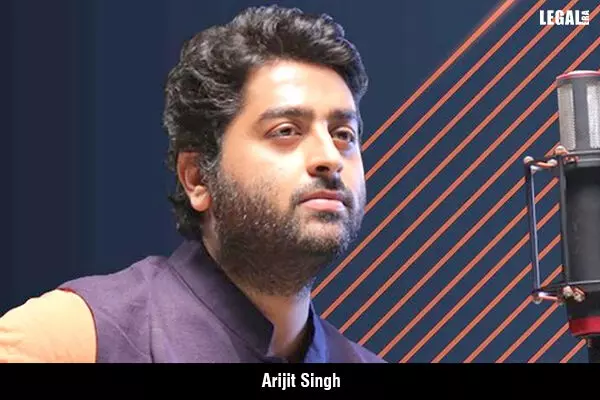- Home
- News
- Articles+
- Aerospace
- Agriculture
- Alternate Dispute Resolution
- Banking and Finance
- Bankruptcy
- Book Review
- Bribery & Corruption
- Commercial Litigation
- Competition Law
- Conference Reports
- Consumer Products
- Contract
- Corporate Governance
- Corporate Law
- Covid-19
- Cryptocurrency
- Cybersecurity
- Data Protection
- Defence
- Digital Economy
- E-commerce
- Employment Law
- Energy and Natural Resources
- Entertainment and Sports Law
- Environmental Law
- FDI
- Food and Beverage
- Health Care
- IBC Diaries
- Insurance Law
- Intellectual Property
- International Law
- Know the Law
- Labour Laws
- Litigation
- Litigation Funding
- Manufacturing
- Mergers & Acquisitions
- NFTs
- Privacy
- Private Equity
- Project Finance
- Real Estate
- Risk and Compliance
- Technology Media and Telecom
- Tributes
- Zoom In
- Take On Board
- In Focus
- Law & Policy and Regulation
- IP & Tech Era
- Viewpoint
- Arbitration & Mediation
- Tax
- Student Corner
- AI
- ESG
- Gaming
- Inclusion & Diversity
- Law Firms
- In-House
- Rankings
- E-Magazine
- Legal Era TV
- Events
- News
- Articles
- Aerospace
- Agriculture
- Alternate Dispute Resolution
- Banking and Finance
- Bankruptcy
- Book Review
- Bribery & Corruption
- Commercial Litigation
- Competition Law
- Conference Reports
- Consumer Products
- Contract
- Corporate Governance
- Corporate Law
- Covid-19
- Cryptocurrency
- Cybersecurity
- Data Protection
- Defence
- Digital Economy
- E-commerce
- Employment Law
- Energy and Natural Resources
- Entertainment and Sports Law
- Environmental Law
- FDI
- Food and Beverage
- Health Care
- IBC Diaries
- Insurance Law
- Intellectual Property
- International Law
- Know the Law
- Labour Laws
- Litigation
- Litigation Funding
- Manufacturing
- Mergers & Acquisitions
- NFTs
- Privacy
- Private Equity
- Project Finance
- Real Estate
- Risk and Compliance
- Technology Media and Telecom
- Tributes
- Zoom In
- Take On Board
- In Focus
- Law & Policy and Regulation
- IP & Tech Era
- Viewpoint
- Arbitration & Mediation
- Tax
- Student Corner
- AI
- ESG
- Gaming
- Inclusion & Diversity
- Law Firms
- In-House
- Rankings
- E-Magazine
- Legal Era TV
- Events
Bombay High Court Grants Relief To Arijit Singh; AI Tools Mimicking Voice Violate Rights

Bombay High Court Grants Relief To Arijit Singh; AI Tools Mimicking Voice Violate Rights
Rules that freedom of speech and expression did not grant the license to exploit a celebrity's persona for commercial gains
The Bombay High Court has granted relief to composer-singer Arijit Singh, stating that Al tools generating content using a celebrity's voice, image or other attributes without consent, violated the ‘personality rights’.
The bench of Justice RI Chagla held that celebrities were particularly vulnerable to unauthorized AI-generated content. He restrained eight online platforms from using the singer’s ‘personality rights’ and directed them to remove all such content and voice-conversion tools.
Singh had filed a petition through Legasis Partners, claiming that these platforms provided AI tools to synthesize artificial sound recordings by mimicking his voice, mannerisms and other attributes.
His lawyer, Hiren Kamod explained that the composer-singer refrained from brand endorsement or commercialization of his personality traits for several years.
While providing interim relief to Singh, Justice Chagla said, "What shocks the court is how celebrities, particularly performers such as the present plaintiff are vulnerable to being targeted by unauthorized generative Al content.”
The bench added that freedom of speech and expression allowed critique and commentary but did not grant the license to exploit a celebrity's persona for commercial gains.
Justice Chagla expressed, "Making AI tools available that enable the conversion of any voice into that of a celebrity without his/her permission constitutes a violation of the celebrity's personality rights. Such tools facilitated ‘unauthorized appropriation and manipulation’ of a celebrity's voice, a key component of their identity.”
The court held that the Al technology undermined a celebrity’s ability to prevent the “deceptive use of his identity.” It noted that Singh had gained immense goodwill and reputation in his career. However, such platforms emboldened Internet users to create counterfeit sound recordings and videos.
Thus, the judge ruled, “Prima facie, I am of the view that the plaintiff's personality traits including his name, voice, photograph/caricature, image, likeness, persona and other attributes of his personality are protectable elements of his personality rights.”
He also considered advocate Kamod’s contention that Singh belonged to a small town and had humble beginnings; now he was one of the most celebrated singers in the world.
The petition had sought the protection of Singh’s personality rights of his name, voice, signatures, photographs, images, caricatures, likeness, persona, and other attributes against unauthorized/unlicensed commercial exploitation and misuse.
The petition mentioned that several YouTube channels were creating memes and GIFs ‘causing ridicule, embarrassment and humiliation and affecting the singer's reputation.


